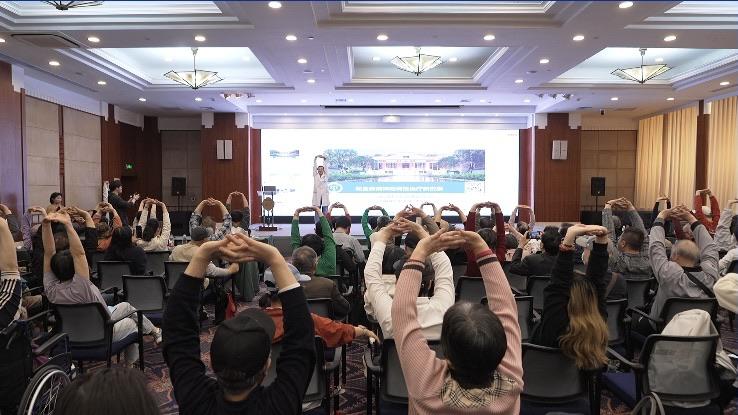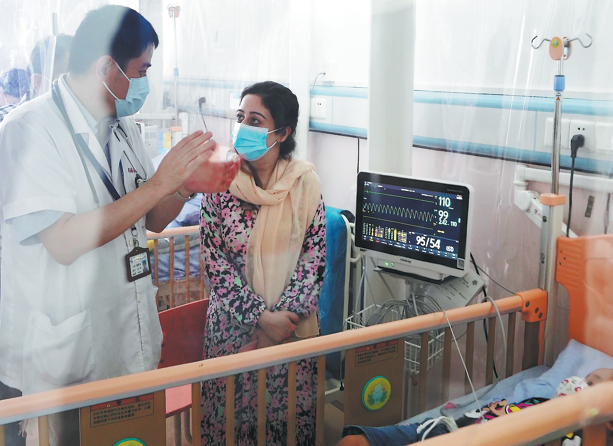'Cell replacement' therapy shows potential in helping Parkinson's patients

China's first Parkinson's disease patient to receive a GCP-class autologous stem cell transplantation at Shanghai Ruijin Hospital shared her stage-by-stage recovery experience with the public at an April 8 event.
This signified that the patient successfully passed an international-standard clinical trial and used her own stem cells to repair damaged neurons, marking a key step in applying cell therapy to Parkinson’s disease in China and offering hope for functional recovery.
Led by neurology experts, the event aimed to raise awareness among patients about the disease. Experts presented cutting-edge treatment explorations to more than 200 patients.
Parkinson's disease is a common neurodegenerative disorder affecting about 4 million individuals in China. Due to the gradual death of dopamine-producing neurons in the brain, patients experience symptoms such as limb tremors and slowed movement. This may eventually lead to a loss of motor function and even a complete loss of the ability to care for themselves. Medical experts said that current drug therapies alleviate symptoms but fail to halt disease progression.
The patient, a 66-year-old woman surnamed Shen, underwent a minimally invasive procedure at Ruijin Hospital on March 1, during which dopaminergic neural precursor cells derived from autologous induced pluripotent stem cells were transplanted into specific areas of her brain. She has already regained the ability to walk independently throughout the day.
The treatment was developed through a collaboration between the neurology team at Ruijin Hospital and the Center for Excellence in Brain Science and Intelligence Technology of the Chinese Academy of Sciences.
"The transplanted cells are expected to mature over the next three to six months, establish connections with the existing neural network, and release dopamine as needed. This 'cell replacement' therapy holds the promise of realizing functional recovery compared with traditional drug treatments," said Li Dianyou, the lead surgeon.
Ning Guang, an academician with the Chinese Academy of Engineering and president of Ruijin Hospital, said the hospital has long been committed to the clinical treatment and research of Parkinson's disease. It has achieved technological breakthroughs, including stem cell transplantation and neural modulation, which have shown promising results in improving patient outcomes.

